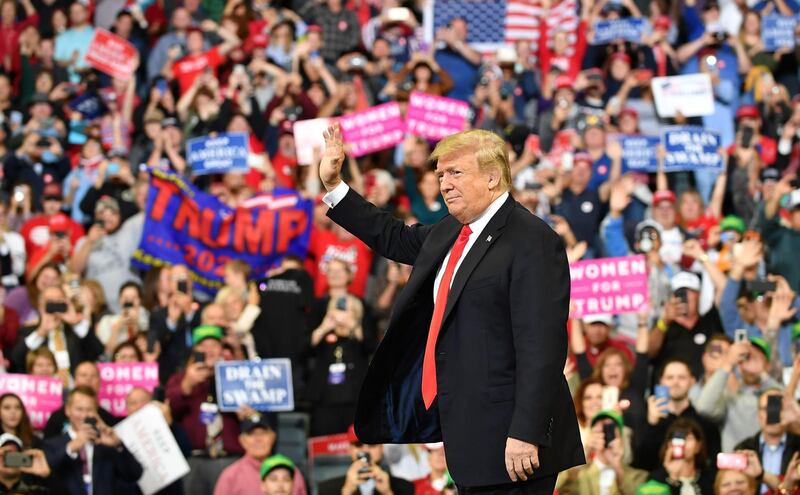The voices of millions of mainstream American voters are being lost in the country’s bitter, polarised politics, according to a new survey that found the vast majority of respondents were tired of partisanship as the US heads to pivotal midterm elections next month.
Donald Trump’s time in office has marked a surge in us-versus-them narratives that came to a head this month with the brutal confirmation battle to install Brett Kavanaugh on the Supreme Court.
But the survey, conducted by YouGov in partnership with More in Common, suggests the headlines tell only part of the story.
It found a string of core beliefs that Americans can agree on – from the 82 per cent of respondents that believe that the United States still has a serious problem with racism to the 80 per cent who also believe that political correctness has become a problem.
“Social media and angry pundits are distorting the national debate," said Tim Dixon, co-founder of More in Common.
“The public is constantly shown cartoon character versions of the other side's views. Most Americans – including both liberals and conservatives – are actually more reasonable than people on the other side are made to think.”
The survey of 8,000 people identified seven tribes – from the Progressive Activists, making up about 8 per cent of the US population, at one end of the political spectrum to Devoted Conservatives (about 6 per cent) at the other.
While those groups may be at odds, the other tribes in between – Traditional Liberals, Passive Liberals, Politically Disengaged, Moderates and Traditional Conservatives – are often more flexible and open to compromise, according to the report’s authors.
_______________
Read more:
[ 2018 midterms: Everything you need to know about the US elections ]
[ Kavanaugh's confirmation is just the start of this sorry story ]
[ Democrat longshot starts race early to take down Donald Trump ]
_______________
There is also an “exhausted majority” comprising two-thirds of the population who say they have had enough of polarised politics, and that the debate does not reflect their priorities.
“Their views may differ on many issues, but a clear majority feel exhausted by the us-versus-them conflict which has spread from faraway debates in Congress to bitter disputes among neighbours, co-workers, and even family members at the Thanksgiving table,” said Mr Dixon.
The report concludes that distinctive beliefs do not need to lead to conflict
It is the first part of the one-year Hidden Tribes project, which aims to bring people together and counter the drivers of polarisation.
Those drivers are on display this month as the country prepares for crucial midterm elections that are billed as a referendum on Mr Trump’s presidency.
Last week they centred on the confirmation battle over Mr Kavanaugh, who was appointed a Supreme Court justice despite being accused of sexual assault.
And again this week, when Donald Trump set the election battle lines with an opinion piece published in USA Today in which he decried Democrats' efforts to overhaul health care, accusing them of pursuing Venezuela-style socialism.
His critics hit back. Bernie Sanders, the veteran Leftist, accused the president of lying while Chuck Schumer, who leads Democrats in the Senate, issued a “corrected” version of the article, covered in red ink.
Reed Galen, chief strategist of the Serve America Movement, a new bipartisan group, said it was a classic example of the problem highlighted in the report.
“That is doing what President Trump does best, which is making Democrats absolutely crazy,” he said. “Now, rather than rationally defending their position they are going crazy about how he’s lying and distorting everything.”
Both parties have become bullhorns for their most extreme wings, he added, as shown during the Kavanaugh confirmation battle.
“I’m hoping it’s the nadir of our politics," he said. “I’m afraid it’s not, given that we are three and a half weeks from midterms.”
_______________
Read more: Politicians could learn a lesson from ancient Rome and know when to quit
_______________






